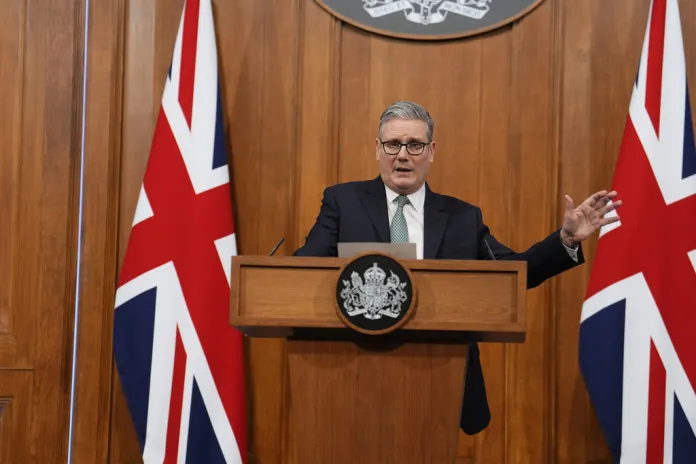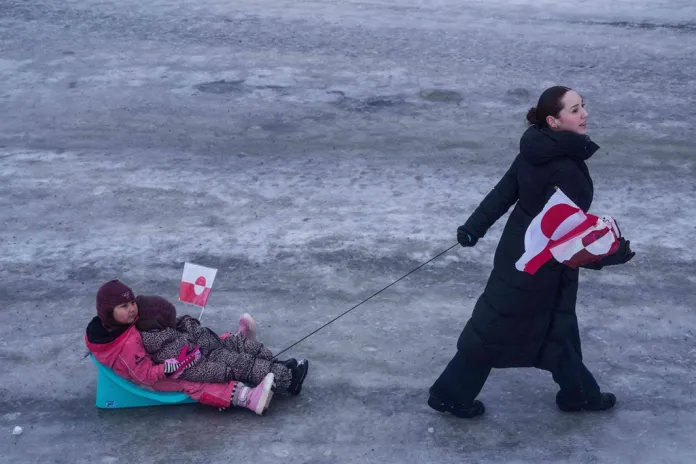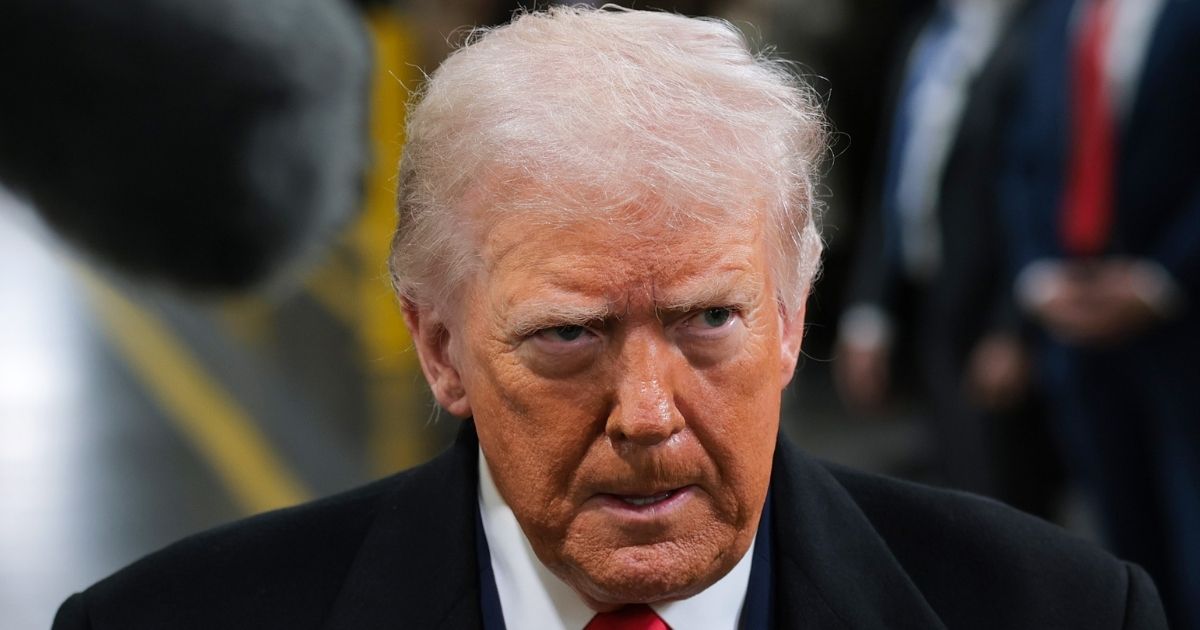Armenian diaspora disappointed in peace deal terms with Azerbaijan
The article discusses the mixed reactions to a recent peace deal between Armenia adn Azerbaijan, brokered with the involvement of former U.S.president Donald trump. On August 8, Armenian Prime Minister Nikol Pashinyan and azerbaijani President Ilham Aliyev signed an agreement aimed at ending decades of conflict, especially over the Nagorno-Karabakh region. While the governments of Yerevan and Baku view the deal as a hopeful step toward peace and economic cooperation, many in the Armenian diaspora-especially in the United States-feel disappointed and betrayed.
The Armenian-American community views the agreement as a humiliating concession that fails to address key issues such as the rights of Armenian refugees displaced from Nagorno-Karabakh, the preservation of Armenian cultural and religious sites, and the detention of Armenian political prisoners in Azerbaijan. Critics argue that the peace deal effectively normalizes what thay characterize as ethnic cleansing and a forced exodus of Armenians from their ancestral lands.
The diaspora expresses frustration with the perceived lack of strong support from the U.S. government, accusing successive administrations of failing to adequately back Armenia. There is skepticism about the U.S.-managed corridor that links Azerbaijan to its exclave of Nakhchivan, fearing it might very well be used by Azerbaijan to gradually erode Armenian sovereignty.
The article also highlights the deep ancient trauma of Armenians, rooted in the Armenian Genocide, which influences diaspora perspectives. While the peace deal is seen by some as pragmatic, many Armenian-Americans believe it falls short of securing justice and lasting peace. They advocate for stronger international involvement, including potential UN peacekeeping forces, to ensure the rights and safety of Armenians remain protected.
Additionally, the Armenian Prime Minister’s standing among diaspora Armenians has suffered due to the outcome of the conflict, ongoing tensions with the Armenian Church, and a perceived failure to effectively represent Armenian interests. Meanwhile, Azerbaijan defends its legal processes for Armenian prisoners and insists on reciprocity regarding displaced peoples. The article captures the complexity and emotional depth surrounding the conflict resolution efforts,underscoring lingering distrust and unresolved grievances within the Armenian diaspora.
As Yerevan celebrates peace deal, Armenian diaspora voices disappointment
On Aug. 8, a beaming Armenian Prime Minister Nikol Pashinyan and Azerbaijani President Ilham Aliyev shook hands over President Donald Trump, agreeing to a seemingly win-win peace deal that would see the decades-old rivals finally put an end to their feuding.
This is the view held by Baku and Yerevan, at least. As Armenians struggle to come to terms with the crushing loss of Nagorno-Karabakh, diaspora Armenians in the U.S. feel disappointed by both their home country and ancestral homeland. To many of them, the latest preliminary peace deal signed by Pashinyan represents a humiliating capitulation.
“I think it’s equal,” Armenian American communications strategist Stephan Pechdimaldji told the Washington Examiner, when asked if diaspora Armenian Americans were more disappointed in the U.S. or Armenia proper. “To be honest with you, personally, I think it’s more in the U.S.”
“I think Armenians are very upset with the fact that the U.S. hasn’t supported Armenia to the length that they should,” he said. “Whether it’s Biden, whether it’s Trump, or whether it was Obama. I mean, you go down the line, Armenians feel like they’ve been duped by a lot of administrations.”
“When they run for office, they talk a great game. They’re looking for votes and money, but they’re once in office, they just kowtow to Ankara or Baku,” Pechdimaldji continued. “We feel let down by the U.S.”
Armenians have been a diaspora nation for over 2,000 years, but the event that scattered them around the world was the Armenian Genocide. Beginning in 1915, Ottoman officials carried out a campaign of extermination against the Christian group they feared was a fifth column. Historians estimate that around 1.5 million were killed, representing over half of Ottoman Armenians and roughly a third of all Armenians. The survivors were scattered around the world, and even over a century later, the tragedy still colors their view of their ancestral region.
“The reason why diaspora Armenians are so vocal about this is because we’re descendants of the genocide, right? We’re here in America… Armenians are in Canada and France because of the genocide, right? So we look at everything through that prism,” Pechdimaldji said.
When Armenia declared its independence from the Soviet Union, diaspora Armenians were a major factor in creating and sustaining the infant state. In its early years, a significant percentage of state revenue came from donations from the diaspora.
This intimate relationship with their ancestral homeland has made diaspora Armenians influential in the country’s politics. Their status as descendants of refugees fleeing the genocide means many take a hardline view on the country, with some clashing with Yerevan. While the Pashinyan government hopes to turn a new leaf with Turkey and Azerbaijan, the diaspora is more skeptical.
Azerbaijanis were not perpetrators of the Armenian Genocide, but the Caucasus was consumed by bloody inter-ethnic violence between Armenians and Azerbaijanis around World War I.
When the second war for Nagorno-Karabakh began in September 2020, Armenian Americans held rallies and tried to raise awareness in any way they could. These appeals largely fell on deaf ears, however, with most Americans more focused on the COVID-19 pandemic and nail-biting 2020 elections than a conflict few had any understanding of.
Washington largely sat back and stayed out of it, cognizant that Armenia was a traditional Russian ally with few high-level connections to the U.S. Furthermore, Azerbaijan’s two closest allies were NATO member Turkey and Israel, long a bipartisan favorite of U.S. lawmakers. Washington was happy to let Moscow broker the peace deal that ended the 44-day war, deploying peacekeepers to implement the lopsided terms.
Armenia had been thoroughly routed, its aged defenses no match for the much larger Azerbaijan’s Israeli drones, vast wealth, and modernized military.
The Armenian residents of Nagorno-Karabakh occupied a precarious position for the next three years, cut off from the world, until a final offensive in 2023 sent nearly all 100,000+ residents fleeing into Armenia, abandoning an area Armenians had occupied for several millennia.
Yerevan now found itself in a hopeless situation, bereft of any real allies, its military in tatters, and an increasingly bitter Armenian public. Though Azerbaijan now held Nagorno-Karabakh, several major issues remained. The leaders of the unrecognized Republic of Artsakh were arrested and taken to Baku to be charged as war criminals, Armenians native to Nagorno-Karabakh were without homes, Armenians feared their cultural and religious sites were in danger, and Azerbaijan still eyed a way to directly access its Nakhchivan exclave — a part of Azerbaijan cut off by Armenia’s geography. Many Armenians feared an invasion to forcibly cut out a corridor.
From the Pashinyan government’s view, Trump’s intervention was a Godsend. According to the U.S.-brokered deal, a corridor would link Azerbaijan with Nakchivan, and that corridor would be put fully under American management. This would allow Armenia to maintain its sovereignty while allowing Azerbaijan full access to its province. The deal even resolves heated linguistic bickering, naming the corridor the “Trump Route for International Peace and Prosperity,” or TRIPP.
As the logic goes, the establishment of a U.S.-controlled corridor both incentivizes development in Armenia and Azerbaijan, establishes a direct trade link between Azerbaijan and its ally Turkey, and gives the U.S. a direct economic interest in preserving peace and stability in the Caucasus. The deal reflects Trump’s strategy of mixing economics and diplomacy, giving the U.S. a tangible stake in the area.
Armenian Americans are more than a little bit skeptical. Pechdimaldji described it as “chipping away” at Armenia’s sovereignty.
“I don’t think that Azerbaijan is going to launch a full-out war with Armenia right now. But… taking piece by piece, region by region, is something that they’re certainly looking at. So I wouldn’t be surprised if this is part of that process where they see this as an opportunity to start taking away at certain parts of the country,” he asserted, adding that the economic aspect would represent more of a cudgel than deterrence.
Aram Hamparian, executive director of the Armenian-American advocacy group Armenian National Committee of America, also voiced his skepticism to the Washington Examiner. He compared the corridor to the Lachin Corridor, the only connection Nagorno-Karabakh had to Armenia after the conclusion of the Second Nagorno-Karabakh War. The road was the site of an international crisis when Baku accused Armenia of smuggling landmines and other weapons into the enclave through the road, implementing a months-long blockade in response.
“I believe that’s their intention, also with a corridor across southern Armenia,” he claimed, saying Baku would say they respect Armenia’s sovereignty, but use it “eventually to gain some kind of foothold, legal or illegal, in some matter, to have a presence there, to move traffic through there, maybe to move troops through there, and, then eventually, at some point, to create a crisis or a pretext and then use that to take that land.”
However, the primary issue Armenian Americans have with the deal is its lack of addressing what they feel are the real central issues: the Artsakh leaders on trial in Baku, referred to by Armenians almost unanimously as “hostages,” guarantees of the preservation of Armenian religious and cultural sites within Nagorno-Karabakh, and the right of return of Armenian refugees.
Hamparian said that the biggest issue should be the return of Armenian refugees, and that a failure to do so would set a dangerous precedent.
“In the big picture, it normalizes the ethnic cleansing of Nagorno Karabakh,” Hamparian said of the deal. “That’s extremely dangerous, because normalizing that type of behavior invites a repetition of that type of behavior.”
He argued that Azerbaijan has “been rewarded at every turn for what I imagine is one of the largest ethnic cleansings in the last half century, right? And they get an invitation to the White House, and business as usual. So our big picture is that normalizing ethnic cleansing, normalizing the genocidal exodus of a people from their ancient homeland, invites more of the same.”
“Azerbaijan is rewarded for having met the conditions of genocide under the Genocide Convention, which is to make life impossible for a group of people, which is exactly what they did before they drove them out, they starved them for 10 months using a blockade, and then at the end of the blockade, they attacked, and these people were terrorized, and they left, and there’s not been a single consequence for that, no cost. It’s a cost-free genocide,” Hamparian asserted.
The right of return of Armenian refugees is a complicated subject, as Baku insists such a right already exists. Azerbaijan also counters by citing its own refugees who were forced to flee Armenia during the bloodletting of the First Nagorno-Karabakh War, along with the hundreds of thousands of Karabakh Azerbaijanis who were forced to flee following the defeat. Baku frequently accuses Armenia of carrying out a genocide against Azerbaijanis during the First Nagorno-Karabakh War, specifically the Khojaly Massacre in 1992.
When asked about the right of return of Armenian refugees in an interview with the Washington Examiner last month, Azerbaijani Ambassador Khazar Ibrahim said that in international relations, there must always be reciprocity, and Armenia doesn’t allow any Azerbaijani refugees expelled in the 1980s and 1990s to return.
“We do believe that every person has a right to go back wherever they want, but everything should be legal. And actually, for those Armenians who left Azerbaijan, the government of Azerbaijan immediately, immediately created the avenue, a special portal through which they can legally request coming back. But the same conditions do not exist for Azerbaijanis who left Armenia, where they had property and many other things,” he said.
Hamparian scoffed at the sentiment.
“If our memory went back like five minutes, that might be reasonable,” he said of Azerbaijan’s offers to facilitate the return of Armenian refugees.
“The Azerbaijani state has made it very clear exactly where it stands on Armenians, and so no, it would have to be back in some kind of a collective, protected manner,” he said.
Hamparian and Pechdimaldji both recommended a United Nations mission and peacekeeping force to facilitate the return of Armenian refugees. Both believe such a move is a distinct possibility, and a realistic one.
The other urgent priority for the diaspora, the release of the imprisoned Armenians in Baku, seems to be a nonstarter for Baku. The 23 imprisoned Armenians, viewed by Armenians as wrongly held political prisoners, are viewed as terrorists and war criminals who must stand trial.
“As far as the Armenians on trial in Azerbaijan are concerned, it’s not just that we want to have a trial for somebody. It’s the … obligation of every state, if there are claims of some wrongdoings, and especially their grave things which one side believes has happened,” Ibrahim said. “There should be a legal process, and the process is legal, it’s not political, it’s not anything else. So everybody has the right to defend himself or herself. But at the end of the day, law is law. It should be equal to everybody; Azerbaijanis, Armenians, domestically, internally, or internationally.”
Pashinyan was widely popular among diaspora Armenians after taking power in the 2018 Velvet Revolution, maintaining good relations with them and doing community visits during his international trips. That all changed with the war and loss of Nagorno-Karabakh, which has tanked Pashinyan’s reputation among Armenians domestically and abroad, but more so abroad. While his supporters see a pragmatist trying to make the best of a bad decision, his many detractors dismiss him as egotistical and unable to see his failures.
“He just keeps doubling down on, ‘I’m right. I’m right. I’m smart. Everyone else is kind of a dummy,’ or something,” Hamparian said.
“He is now convinced himself, or maybe he’s just pitching the idea that this was actually a victory for Armenia, that Armenia is safer today than it’s ever been. That kind of talk might be popular in different capitals around the world, but I don’t think any Armenians think this was a victory. They lost a lot of their sons in the battle. Most of them have relatives who are from Nagorno-Karabakh, or, historically, have roots in Nagorno-Karabakh. That’s just, that’s kind of stuff you would say, if you want to, maybe, you know, score some points at Foggy Bottom,” he said.
AZERBAIJANI AMBASSADOR PRAISES TRUMP AS ‘TRUE PEACEMAKER’ AFTER HISTORIC AZERBAIJAN-ARMENIA DEAL
Pashinyan’s reputation has been further harmed among the diaspora by his recent battle with the Armenian Apostolic Church, the most beloved institution of Armenians.
“The Armenian Church is like a common ground. It’s like a safe space. It’s the center of gravity of the Armenian world,” Hamparian said. “People can disagree or like or dislike a particular church leader, but the idea that the church has an important place in our world, and should be demeaned and/or manipulated, is out there.”
" Conservative News Daily does not always share or support the views and opinions expressed here; they are just those of the writer."




